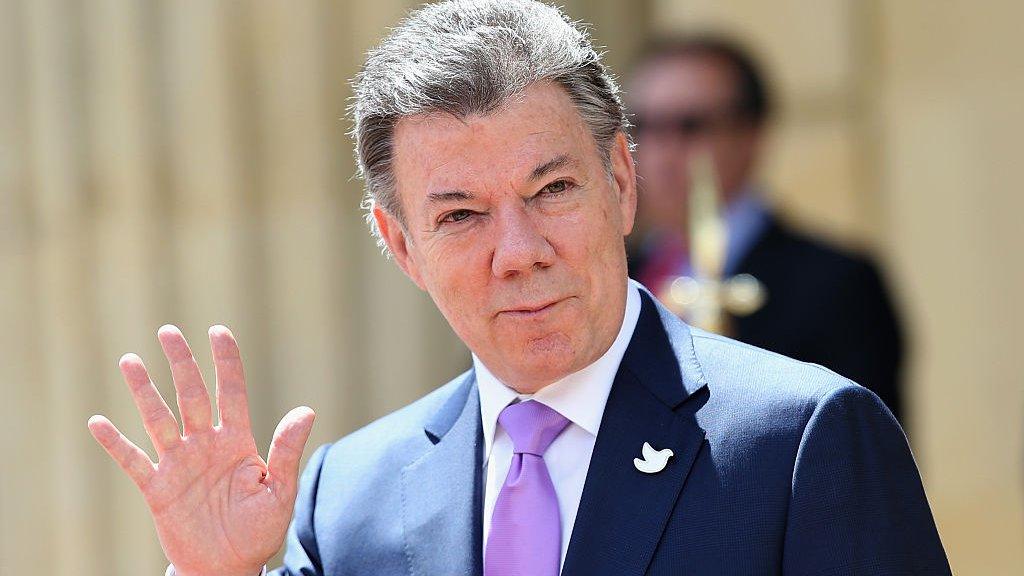Santos Nobel Peace Prize rejuvenates hope for Colombia deal
- Published
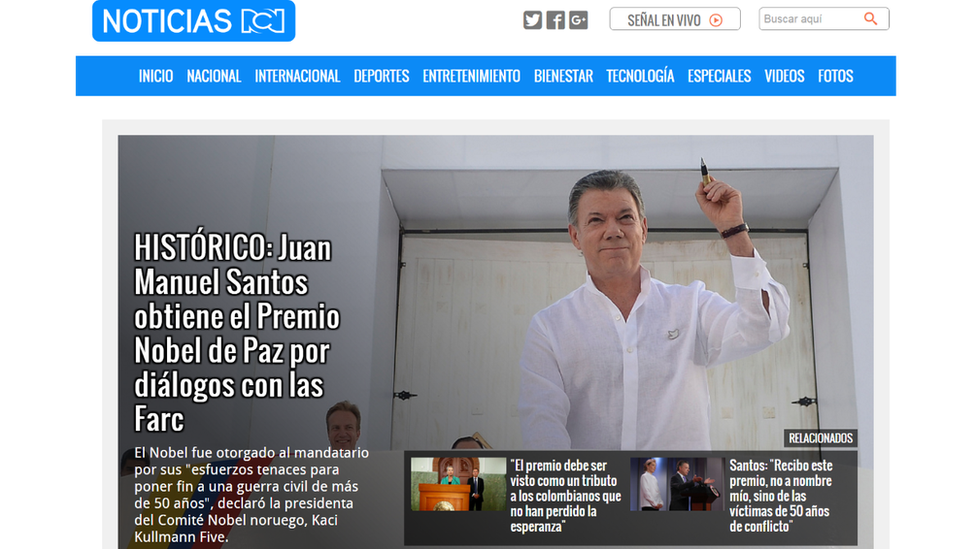
Many media outlets are praising the decision to award the Colombian president the Nobel Peace Prize
Less than a week after a peace deal between the Colombian government and the country's largest guerrilla group was rejected in a referendum, the Nobel committee in Oslo announced that Juan Manuel Santos, the country's president, will receive the 2016 Nobel peace prize.
Mr Santos, in a short televised speech, said the prize was not for him but for "millions of Colombians" and the "millions of victims" of the 50-year-old conflict with the Farc (Revolutionary Armed Forces of Colombia). He said it was a mandate for him to continue pushing for peace "for the rest of his days".
On its website, leading Colombian daily El Tiempo, external focused its headline on Mr Santos' speech and his comment that the Nobel prize was not for him, but for Colombians, and that peace was still possible.
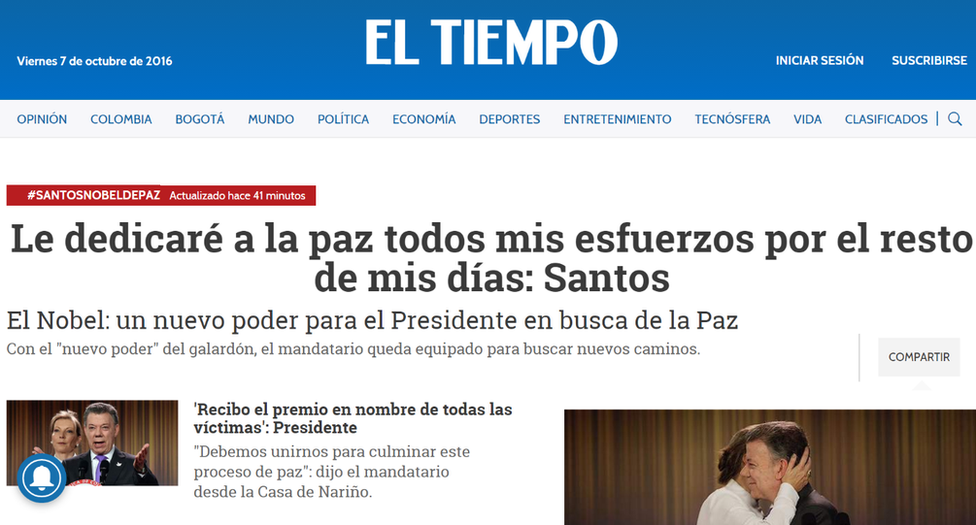
The El Tiempo daily quoted Mr Santos saying: "I will dedicate all my efforts for the rest of my days to peace"
The website of influential centre-right broadcaster RCN Noticias, external called the Nobel award "historic", stressing the fact that it was awarded for the peace efforts made by the country's leader.
'Heart-stopping week'
Investigative magazine Semana, external said on its website that the country had gone through a "heart-stopping week".
It was referring to the successive events of the 2 October referendum vote which narrowly rejected the peace deal, a victory for the Colombian football team in a qualifying match for the World Cup against Paraguay, and now a "historic" Nobel peace prize.
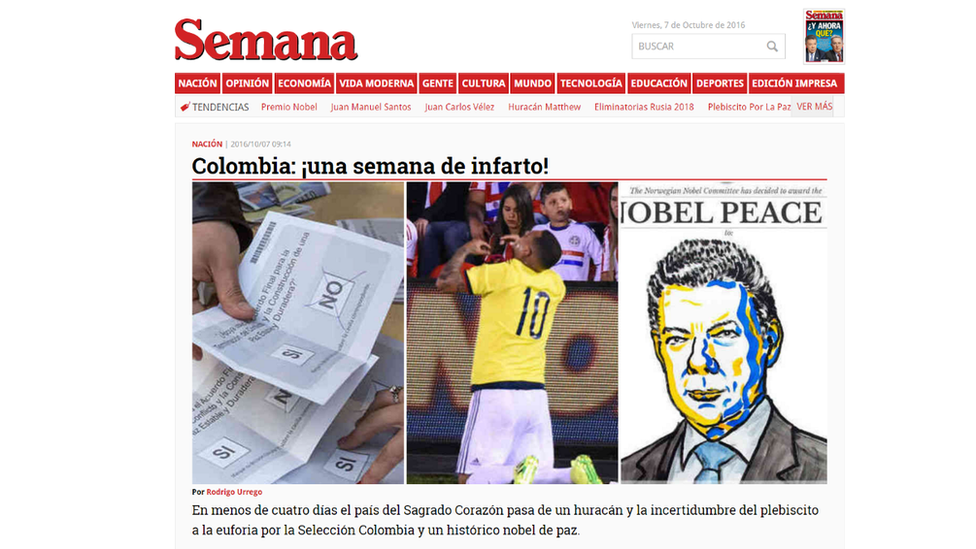
"A heart-stopping week!" says the Semana magazine
Rodrigo Londono, external, alias Timochenko, the Farc's top leader, congratulated Mr Santos via Twitter but said the only prize his organisation aspired to was "peace with social justice for Colombia".
The man who led the "No" movement that rejected the peace deal, former president and current Senator Alvaro Uribe, external, used his Twitter account to congratulate Mr Santos. But he also said he hoped the prize would help "change deals that are harmful to democracy", referring to the 26 September deal signed with the Farc in Havana.
Peace deal 'must be revised'
Left-wing senator and former leader of the now demobilised M-19 rebel group, Antonio Navarro Wolff, said in an interview with Bogota-based W Radio station, external that he agreed with the decision to give the award to Santos.
He said it reflected "the unanimous international support the peace process has received" and it sent a message to the Farc by saying "the final deal must be revised".
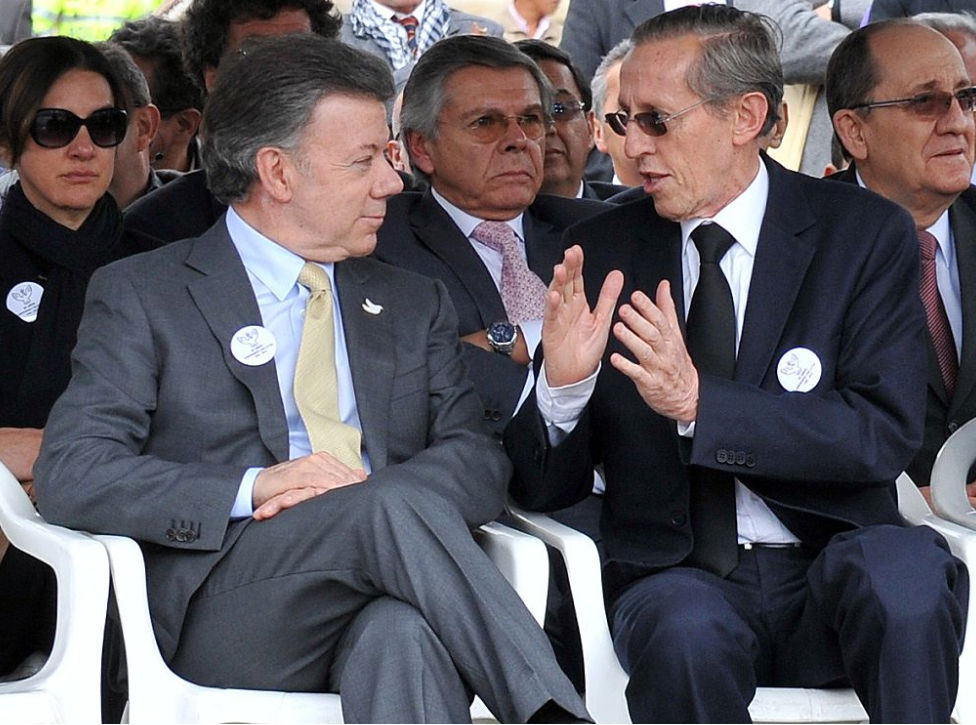
Antonio Navarro (R), a former leader of the demobilised M-19 guerrilla group, believes the Nobel prize can give a new push to the peace process in Colombia
Opposition Senator Carlos Holmes Trujillo said the impact of the Nobel prize was to "create new paths that will allow the president to follow the will of Colombians", referring to the plebiscite vote that rejected the deal in its current state.
Centre-right commentator Maria Isabel Rueda said the prize gave Mr Santos "energy to avoid remaining neutral between the 'No' side and the Farc", given that it would be impossible now for the country to have "a peace prize without peace".
The left-wing Colombian senator, Jorge Enrique Robledo, external, said this award proved that the Nobel peace prize was also "handed out for effort", even if currently the peace agreement had not been "successful yet".
BBC Monitoring reports and analyses news from TV, radio, web and print media around the world. You can follow BBC Monitoring on Twitter, external and Facebook, external.
- Published7 October 2016
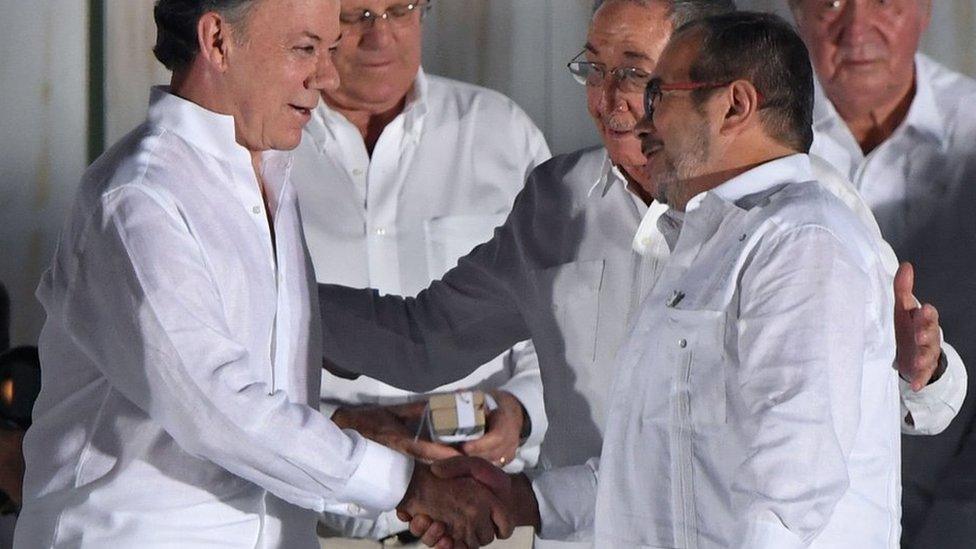
- Published24 November 2016
